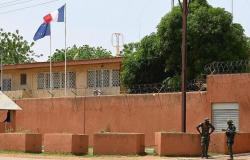LEmmanuel Macron's state visit to Rabat at the end of October marked a turning point in relations between Morocco and France, after several years of tensions. The explicit recognition by Paris of Moroccan sovereignty over the Sahara was at the heart of this reconciliation.
“Ifirstly there is the recognition by France of a truth, a duty of justice and a duty of truth fulfilled by France vis-à-vis Morocco”said Samira Sitaïl on the TV5Monde set. However, she was keen to emphasize that this was not a gesture of favor. “This is not a gift”she insisted.
Returning to France's support for the Moroccan autonomy plan proposed in 2007, she recalled that this plan is today considered by 112 countries as “the only realistic, feasible and sustainable solution” to resolve this decades-old conflict.
Referring to Algeria's role in this dispute, she denounced the direct involvement of this country as a stakeholder, and not as simple support for the Polisario Front. “It is a dispute which has lasted for 49 years and for which we have tens of thousands of compatriots held in camps, in undignified conditions, in the south of Algeria”she lamented.
The Middle East conflict also featured prominently in the interview. Sitaïl expressed Morocco's support for the Palestinian people and called for an immediate ceasefire. “Morocco's position is an immediate ceasefire. It is obviously the preservation of life, the preservation of civilian populations. It is obviously the establishment of humanitarian corridors which allow humanitarian aid to reach the Palestinian populations in the best conditions. And finally, (…) the establishment, the rehabilitation of the two-state solution” to allow “Palestinians and Israelis to live in peace”she said.
“We are a country that has the possibility of discussing with Israel on a daily basis”
Samira Sitaïl, Moroccan ambassador to France
She also highlighted the strategic role of Morocco in its relations with Israel. “We are a country that has the possibility of discussing with Israel on a daily basis”she revealed, citing, as an example, the delivery of 40 tons of food to Gaza last March, “on the first day of Ramadan and at the height of Israeli strikes on Gaza”, a gesture made possible by this bilateral relationship.
“We have (the possibility) to put pressure when necessary. But we don't need television cameras for that, nor microphones nearby to say what we do and how we do it and we undertake it”she added, affirming that “it will take countries like Morocco which have the necessary credibility, both with Palestinians and Israelis, to be able to sit down at the negotiating table.”
On this subject, she also welcomed the demonstrations in Morocco in support of the Palestinian people, seeing there “a sign of good democratic health”. “JI find it absolutely wonderful, and to the honor of the Moroccan people, to bear witness once again to the Palestinian people all support for its inalienable rights to a State, within the framework of the United Nations”she said.
Morocco does not intend to play “the super policeman of Europe”
Samira Sitaïl, Moroccan ambassador to France
Asked about the fight against illegal immigration, Samira Sitaïl detailed Moroccan efforts, while recalling that Morocco is not intended to play “the super policeman of Europe”. In 2023, the Kingdom prevented 70,000 illegal migration attempts and assisted 17,000 migrants in distress in the Mediterranean.
“We are on the front line”she underlined, citing the regularization of nearly 60,000 migrants, mainly from sub-Saharan Africa, as part of a strategy put in place since 2013.
On the question of obligations to leave French territory (OQTF), a frequent subject of discord between France and the Maghreb countries, accused of not repatriating their nationals, she highlighted solid cooperation with Morocco. 80% of consular passes requested were issued in 2024, but almost half of the individuals concerned are not Moroccansshe clarified, calling for a better reading of the figures.
Domestically, Sitaïl defended the ongoing reforms of the Family Code, aimed at strengthening women's rights in a framework consistent with developments in Moroccan society. Finally, in response to debates on the decline of the French language, she recalled that “the Francophonie, these are first of all a certain number of values, human, societal, social, which unite us and which we must preserve”while emphasizing that “globalization requires that we can practice other languages, and kissing them is again normal which affects the entire planet”.





